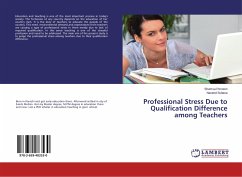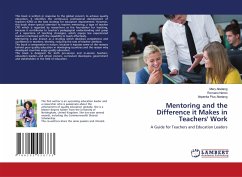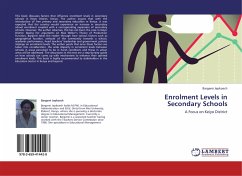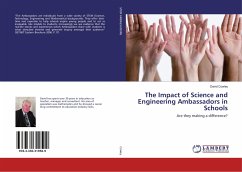
Can Schools Make a Difference?
The Effects of Student Background and School Characteristics on Mathematics Achievement in Israel, A Multilevel Analysis
Versandkostenfrei!
Versandfertig in 6-10 Tagen
36,99 €
inkl. MwSt.

PAYBACK Punkte
18 °P sammeln!
This book focuses on the effects of student characteristics and school variables on the mathematics achievement of 8th grade students in Israel. The research reported in this book was based on data from the TIMSS (Trends in International Mathematics and Science Study) 2007 examination. A two-level model was used to examine the effects of student and school variables on mathematics achievement at the individual and institutional levels. The findings have important implications for teachers, schools and government. Teachers should work to strengthen students' self-efficacy beliefs because it see...
This book focuses on the effects of student characteristics and school variables on the mathematics achievement of 8th grade students in Israel. The research reported in this book was based on data from the TIMSS (Trends in International Mathematics and Science Study) 2007 examination. A two-level model was used to examine the effects of student and school variables on mathematics achievement at the individual and institutional levels. The findings have important implications for teachers, schools and government. Teachers should work to strengthen students' self-efficacy beliefs because it seems that high self-efficacy mitigates the negative effect of SES. That is, students who believe they can succeed reach higher levels of achievement regardless of their SES backgrounds. Furthermore, findings of reported research show that high teacher expectations, especially for the low SES group students, make a difference. At the school and governmental levels, SES (socio-economic status) and type of school (Jewish vs. Arab) continue to be the greatest determinants of success.












